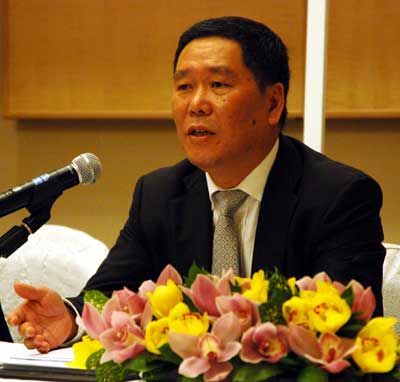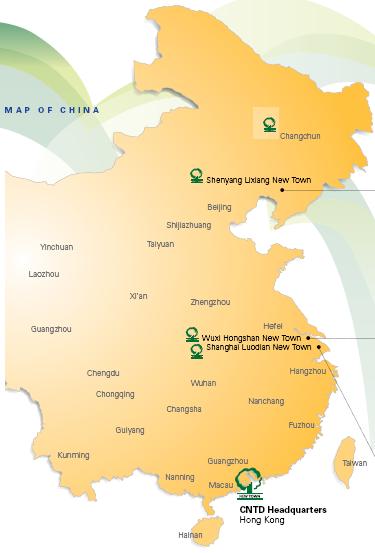 Venue: Pan Pacific Hotel
Venue: Pan Pacific Hotel
Time & date: 9.15 am, Apr 30
SOARING PROPERTY prices and a widening rich-poor divide in China has resulted in some people owning several properties and others caught without ability to own a home.

China’s latest measures to address this social imbalance have been described as the most severe ever, and observers are saying more is to come.
On April 14, China upped the minimum down payment required on the purchase of second homes to 50% (from 40%), and loans to buyers in this segment of the market would be charged at double the People's Bank of China benchmark interest rate.
The bar will also be raised for first-time buyers, with down payments increasing to 30% from 20% if the apartment is larger than 90 square meters.
Banks were also given discretion to refuse mortgages to people buying their third property, and to exercise residency requirements on buyers.
Since the announcement of these measures, stock markets in China and Hong Kong have fallen some 5% to 10%.
The impact, according to a senior government official from China’s Ministry of Housing and Urban-Development quoted by Citi Investment Research & Analysis, will likely be a 20% year-on-year drop in primary housing transaction volumes this year from the peak in 2009, but prices are expected to be higher than in 2008.
Average primary housing prices are also expected to drop 20% from the current level by the end of 2010.
At the AGM of China New Town, its CEO, Li Yao Min, assured shareholders that these austerity measures do not adversely affect the company as it is in the business of preparing rural land for urbanization, rather than residential real estate development.

In FY09, 80% of China New Town’s revenues came from its share of proceeds in land sales by local authorities in Shanghai to third-party residential real estate developers.
As a land infrastructure developer, the company has been managing the entire process of a new town development for 8 years, from designing the master urban plan, to relocation and resettlement of incumbent residents and enterprises, clearing and preparation of the rural land, to installation of infrastructure.
According to Mr Li, about 60% of China’s 1.3 billion people are still rural residents, versus an ideal agrarian population proportion of 30% when it is envisaged that farmers will be lifted out of poverty.
Until then, China’s push for urbanization will spur demand for the 3 land parcels that the company is developing at Shanghai (Luodian), Wuxi (Hongshan) and Shenyang (Lixiang), he said.
He also clarified that unlike for real estate developers, which are under China’s policy to curb land hoarding, the 2 to 3-year time limit for real estate development after land acquisition does not apply to China New Town.
Neither is the company affected by tightening on grant of mortgage loans.
Minority shareholders then voiced concern over the relatively small amount of interest income generated after cash balances had ballooned to as much as Rmb 1.5 billion as at end 2009.
After all, even going by the 0.36% demand deposit rate of Rmb in China banks as at end Apr 2010, cash balances of Rmb 1.5 billion would have generated at least Rmb 5 million of interest income, five times that of the Rmb 1.2 million reported in China New Town’s annual report.
Its independent auditor separately pointed out that cash influx from sale of land parcels took place progressively over the year, and not necessarily at the beginning of the year when its cash balance was only Rmb 138.0 million.
”We expect profits and cash flow to improve over the next 2 years as land prices are expected to stay firm,” concluded Mr Li.
However, S&P analyst Chan Kah Ling in her report dated 20 Apr cautions that any delays by the local governments in carrying out land sale auctions will have a negative impact on China New Town.
Secondly, tight credit markets will also affect its ability to borrow at attractive rates, which is critical, as its projects are capital intensive at inception.
In addition, tight liquidity may impede the developers from purchasing land at auctions, which will affect China New Town’s profitability, according to the analyst.
Related story: CHINA NEW TOWN announces first dividend since '07 IPO







